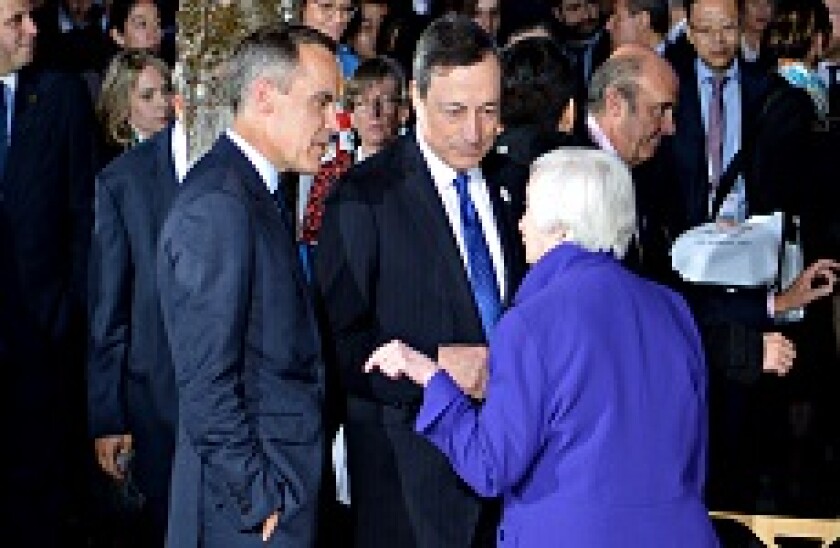This is not to criticise the ECB's boss for defending free trade. In the age of Trump and Brexit it is right that those regarded by many as the brightest economic minds on the planet stand up for global economic cooperation.
But by staying silent on tapering and the ECB’s quantitative easing programmes, Draghi ignored the question that so many in Europe’s capital markets are waiting for even some slight guidance on.
In a note issued this week to investors, Rabobank analysts noted that Draghi’s speech had been disappointing even when expectations had been low.
It added that the high peaks of Jackson Hole “must be an enviable altitude for credit investors, who arguably would like to see higher credit spreads in a more normal market environment with less active central banks”.
All eyes once again will turn to the ECB’s policy meeting next week, where those in Europe’s financial markets are hopeful that the word “taper” might just find its way into a stray paragraph of Draghi’s speech following the meeting.
But it feels at the moment that central banks continue to give markets nothing more than scraps of information to feed on and to plan their funding and investment options around.
Yes, tapering would undoubtedly hurt some, but no one is suggesting the ECB make a dramatic change in policy. It is fair to have at least an indication of when that process might start.
The central bank has allowed Europe’s financial markets to enjoy a glorious summer-like period of extraordinarily accommodating monetary policy.
But to borrow a phrase from HBO’s Game of Thrones, markets need to know when winter is coming and how severe it’s going to be.

